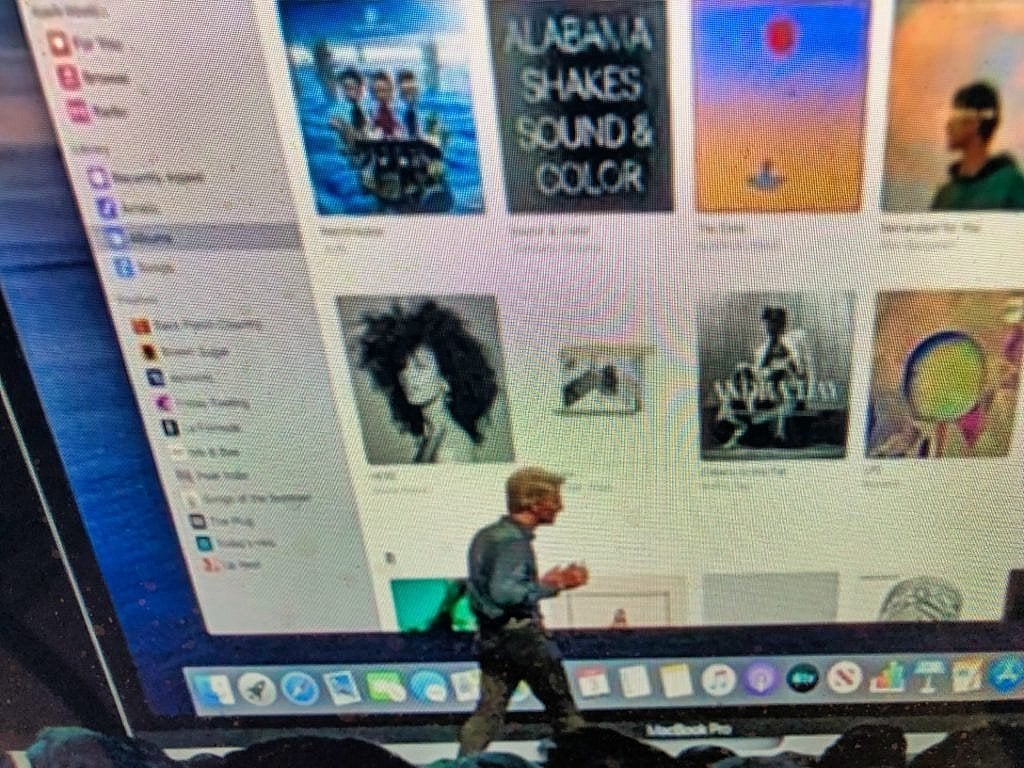
Apple loves it when people talk about Apple. Conjecture and buzz about leaks leading up to an Apple event is free press coverage, free promotion, and creates attention just before something as inside-baseball as the WWDC. And the leaks are often vague and loose, allowing pundits — both professional and armchair — to argue and guess and give tons of thought-space to one of the world’s biggest corporations.
That’s what makes the aftermath of the iTunes leak so bizarre. The news wasn’t vague at all — in fact, it was refreshingly specific and unsurprising. Apple would strip iTunes of its video/TV, eBooks (why were those still in there anyway?), and podcast features to create a dedicated Music app. Just like on iOS. Even without the leak, we could see this coming.
Bloomberg was the first to report the leak. Admittedly, the expected clickbait headline reads ‘End of iTunes,’ but the piece’s content is specific:
The company is launching a trio of new apps for the Mac – Music, TV, and Podcasts – to replace iTunes. That matches Apple’s media app strategy on iPhones and iPads.
Twitter panic naturally ensued, with users thinking this meant the deletion of their years-in-progress curated playlists, the ability to rip the occasional CD, and even incompatibility with existing music file collections. Granted, Apple hasn’t exactly made iTunes better with each iteration, but it’s still not the type of company to throw its fans under the bus like that. But it’s fun to rant and worry for a minute.
And then, just as the flames needed fanning, the Los Angeles Times inexplicably publishes a news item with the headline ‘Apple will shut down iTunes, ending the download era, report says.’ The article (but not that headline) is now changed, but the original version made it clear the author was referring to the closing of the iTunes store and thus ‘the download era:’
The iTunes store is a dead service walking.
On Friday afternoon, social media erupted after Bloomberg News reported that Apple was set to announce the end of its iTunes store, which transformed the music business when it was launched in 2003.
Keep in mind, the Bloomberg article referenced doesn’t mention the download store at all.
And then, The Guardian picked up on the story with the headline ‘Apple expected to close iTunes after 18 years:’
It was once heralded as a possible saviour of the music industry in the digital age, famously annoyed fans by forcing a U2 album on them, and its 20,699-word terms and conditions have even inspired a graphic novel, but now Apple is to replace its iTunes download service.
Technically, true. The download store will likely lose its iTunes branding. However, the article (which remains unchanged at the time of this post) goes into great detail about the history of the iTunes store and paid music downloads. Also citing Bloomberg, The Guardian only mentions the actual news — the introduction of the Music app — in one sentence of the whole article.
People started losing their shit. Debates on
We’ve been down this road before. It seems like Digital Music News has an ‘unnamed source’ announcing the shuttering of iTunes once a year. And many people are openly hostile towards iTunes — usually the app, not the store — so it’s a polarizing brand name. When the news arrived, it was emotionally spread far and wide by haters and defenders.
Apple had no comment which fueled things further. But, remember — Apple loves it when people talk about Apple. Why extinguish the fire?
There’s a deeper story about the commodification of our attention. I’m not saying The Guardian and the Los Angeles Times purposefully twisted the news of the leak. My estimation is that in a rush for new content and tweet-able breaking news the original Bloomberg piece became a Rorschach test — quickly interpreted and summarized, the writers spun the leak to their wishes. And those wishes were for something dramatic like the death of paid downloads.
I don’t mean to pick on the writers. This rapid environment is the news culture we live in. It’s instant and impermanent. I can’t even imagine the constant pressure from publishers and editors. There’s nothing sexy in a story about how the only thing Apple is killing in iTunes is the name. On a similar note, I’m surprised there weren’t big stories last week on how Warner Bros. Records was killed off.
We have the power here. Chill on the up-to-the-minute hot takes and think before you retweet. Read — really read — the sources. If you’re writing about these things (and there’s not minute-by-minute pressure from a publisher or editor), follow M.G. Siegler’s lead. And maybe wait until after WWDC to comment on how everything is awful now that Apple is going to turn your MP3 collection into dust.
As for iTunes, Bloomberg was correct. Here’s Pitchfork:
A press release issued after the live announcement said that “users will have access to their entire music library, whether they downloaded the songs, purchased them, or ripped them from a CD.” So again, take a deep breath—contrary to speculation, no one’s iTunes collections were “killed” today. Further questions about keeping personal playlists and play counts intact haven’t been answered as of press time.
The press release [also] said, “For those who like to own their music, the iTunes Music Store is just a click away.” In other words, the iTunes store—which was launched two years after its namesake app and transformed the music industry by allowing the purchase of individual songs—is still very much alive.
And, in fact, iTunes lives on. Pitchfork again:
Outside of the Mac ecosystem, it’s still an iTunes world after all. “Windows users will see no changes in their experience,” an Apple rep confirmed to Pitchfork.
🔗→ Apple Plans End of iTunes, to Reveal Glimpses of Its Next Era of Apps and Devices
🔗→ What Apple’s iTunes Shutdown Means for Music Fans
